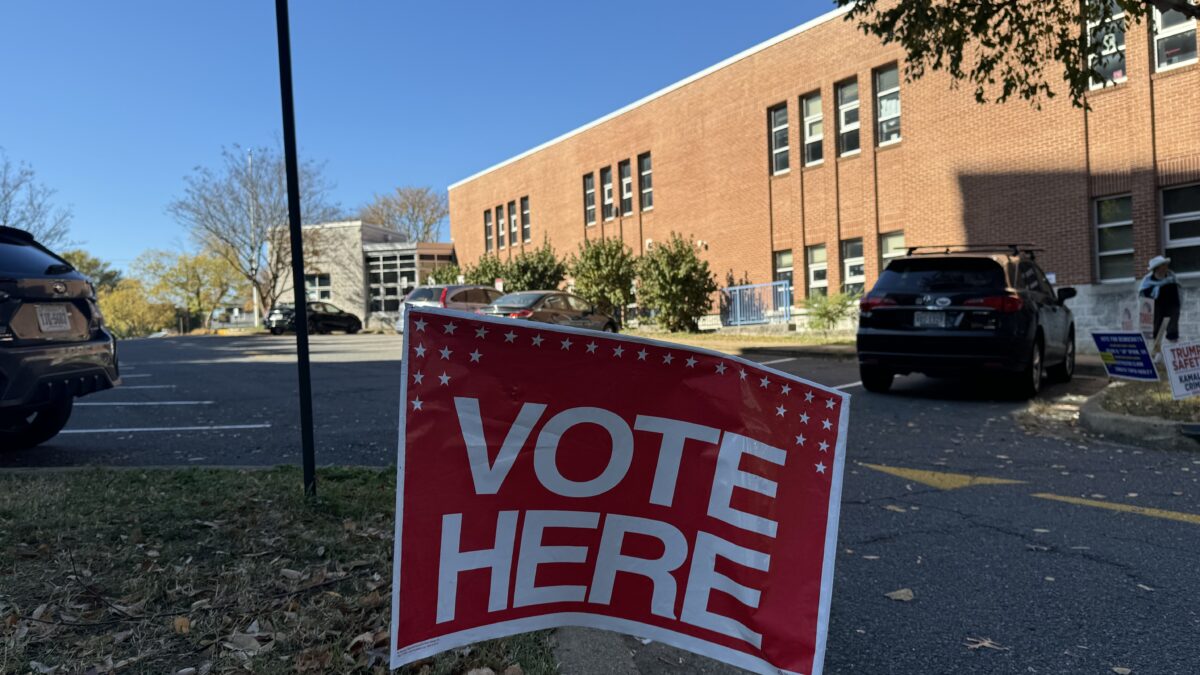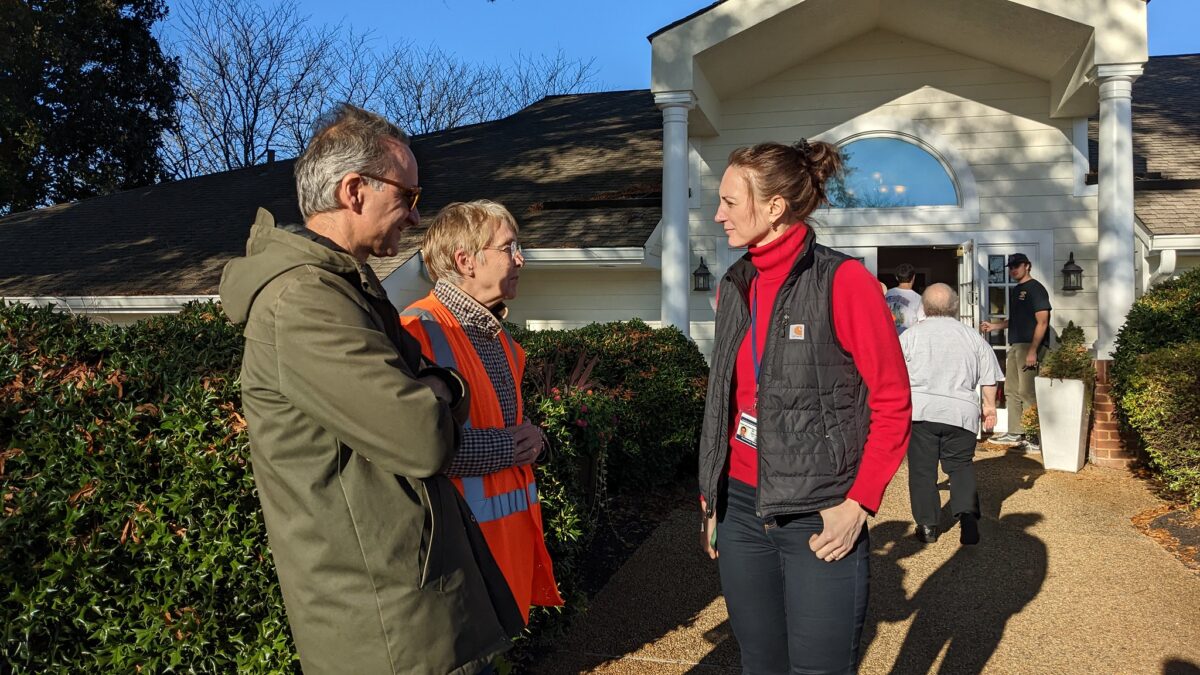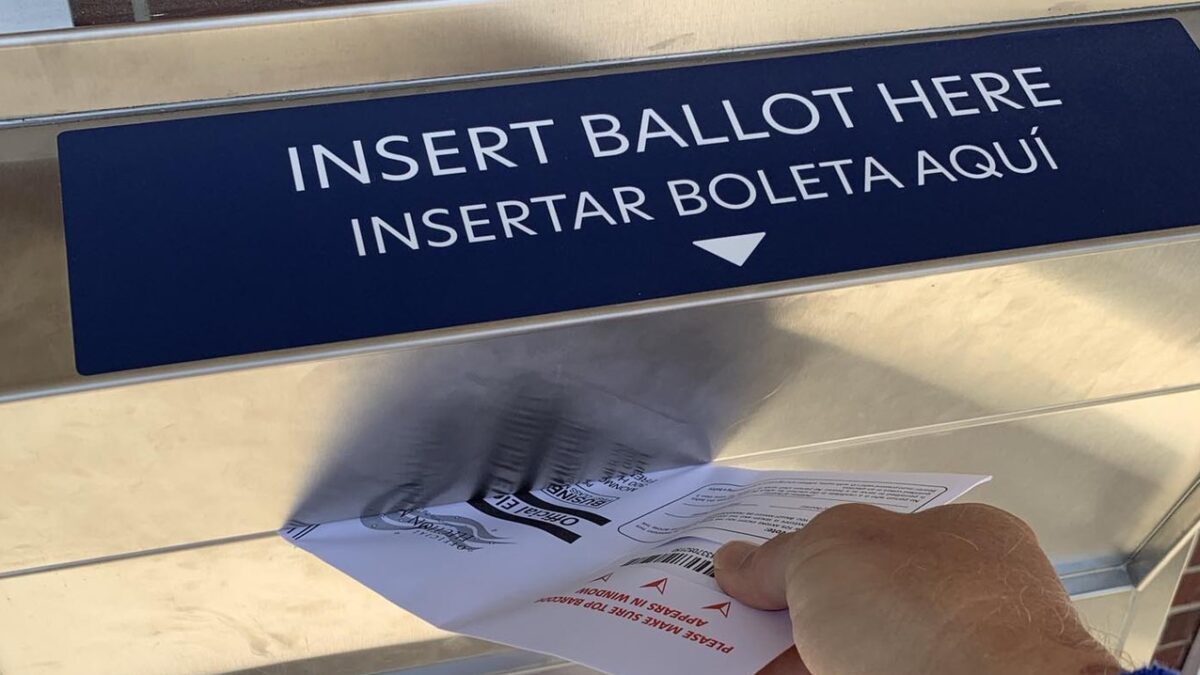An election integrity group in North Carolina has filed a protest to the state’s Supreme Court election results, challenging votes of potential noncitizens who have not proved citizenship in their voter registrations.
Ten days after Election Day, North Carolina’s Democrat incumbent Supreme Court Justice Allison Riggs took a sudden lead over Republican challenger Judge Jefferson Griffin, bringing Griffin’s 10,000-vote Election Day lead to a 24-vote surplus for Riggs.
Jay DeLancy, whose organization Voter Integrity Project of North Carolina (VIPNC) filed the protest, told The Federalist that the move could see a new election called for all races where the margin of victory is within the “margin of cheat.” That is when the number of votes that decide an election is fewer than the number of voters who have not provided proper identification required by federal law.
The Help America Vote Act (HAVA) requires registering voters to provide either a driver’s license or the last four digits of a Social Security Number (SSN) to prove eligibility, but North Carolina did not obtain this information for years, and hundreds of thousands of voters are still registered without such proof.
A press release from VIPNC states that over 30,000 people who were registered to vote without either form of identification voted in the state Supreme Court race, which, at the time of filing Thursday evening, was unofficially decided by 7,759 votes. The protest was filed before the deadline of the state’s official canvass being completed Friday.
“These are illegal registrations. They should never have been registered unless the state could ascertain that information,” DeLancy said.
“The North Carolina State Board of Elections had the opportunity for over a year to clean this up and did not do it,” he added. “So, now they’re going to reap the consequences of their not doing it, in addition to being embarrassed. I believe we’re going to wind up holding a new election in North Carolina. However, it won’t affect races that are beyond the margin of the HAVA cheat.”
Aside from the Supreme Court race, three state House races and two state Senate races also fall within the HAVA margin, according to the VIPNC analysis. In two of the House races, the margin favors the Republican, while one favors the Democrat. The HAVA margins favor one Republican and one Democrat in the Senate.
One race it would not affect is the presidential contest since President-elect Donald Trump’s margin of victory is well outside the HAVA margin, but in addition to the state Supreme Court race, there are several state House and Senate races that are within the margin as well. Those races will be crucial for Republicans, who appear to have already narrowly lost the veto-proof majority it held in the state House and could lose it in the Senate as well.
“We want them to do that now for these races that are within the margin of the HAVA, we’ll call it the margin of cheat, because all those HAVA non-compliant voters, some of them are legit people.” DeLancy said. “You either send back the information or you write them back and say, ‘Please take me off the voter roll. I’m not a U.S. citizen’ or, ‘I really, really do not have a driver’s license or Social Security number,’ and then get that to be a witness signature, because I don’t believe there’s anyone out there — I just don’t believe those humans [without identification] exist unless they’re illegal.”
The protest questions the same pool of HAVA non-compliant voters cited in a lawsuit from the Republican National Committee (RNC) earlier this year, noting about 225,000 voters have not provided either form of identification – raising concerns about noncitizens voting. The lawsuit asked the Democrat-run North Carolina State Board of Elections (NCSBE) to reach out to voters to provide the information, but it has refused to do so.
“We’re not saying all of them are non-citizens, but within this group, we know some of them are non-citizens. We don’t know how many: Is it half? 25 percent? It’s a good number of them, but the state has found a way — you flood the zone by telling people, ‘It’s optional. You don’t need to provide that information.’ So, they were using that roll in order to hide the non-citizens that were on the roll. And they’ve been doing this ever since the beginning of HAVA when it passed.”
According to analysis done by data scientists assisting the VIPNC, cross-referencing the HAVA-noncompliant list and the list of absentee voters on the NCSBE’s website, 34,427 persons were registered to vote without a driver’s license or SSN and voted in years prior to Oct. 24, 2024. DeLancy anticipates this number of similar ballots cast will at least double when the numbers come in for registrants between Oct. 24 and Nov. 14 – the last day certain absentee votes, like those under the Uniformed and Overseas Citizen Absentee Voting Act (UOCAVA), are allowed to come in and be counted in North Carolina.

Other analysts believe Griffin’s 10,000-vote lead diminishing to a 24-vote lead for Riggs is bizarre as well.
Dr. Andy Jackson, director at the Civitas Center for Public Integrity at the John Locke Foundation, told The Federalist that while he has an “explanation” for how the vote cold have switched the way it did, it is not a “decent” one.
“Elections generally drift towards Democrats as mail, UOCAVA, and provisional ballots are counted. For example, in the 2020 NC Supreme Court Chief Justice race, Republican Paul Newby’s 3,000-vote lead on election night diminished to a 400-vote lead after the county canvasses,” Jackson said. “An additional problem in North Carolina was how some counties chose to report absentee ballots. Some counties, including Wake County, the state’s largest county, chose to delay reporting absentee ballots received on election day until late in the process. In fact, Wake did not release their election day absentee data until the county canvass ten days later.”
While on Nov. 8, Jackson wrote that Riggs was unlikely to overtake Griffin’s lead, Jackson pointed out an irregularity in how provisional ballots broke down by party this year, as compared to races in 2022 and 2020. While in the previous two elections, they broke about evenly Democrat to Republican, this year, provisional ballots broke heavily for the Democrat. Jackson said that happened in elections across the board this year.
Jackson noted that at least one county, New Hanover, “illegally waited” to report some absentee ballots received prior to Election Day (Jackson caveated saying that they have not found evidence that those ballots were illegally cast, just not reported as required by law). Research fellow Jim Stirling, Jackson’s colleague, pointed to other strange occurrences from counties like New Hanover.
“Taking the Results file from two days after the election and comparing it to the current results file we have in increase in 25,078 mail-in ballots,” Stirling wrote. “While this is possible with 25,288 ballots being accepted after election day, we find issues when we get into the weeds and compare the vote totals as compared to the accepted mail-in ballots. For example New Hanover saw an increase in 1,817 votes but only saw 474 ballots come on or after election day.”
Stirling said that 25 counties have a “higher change in mail-in results on or after Election Day in the Supreme Court race, than the number of mail-in ballots that came in on or after Election Day.” Those include: Anson, Bertie, Bladen, Buncombe, Burke, Camden, Cleveland, Currituck, Durham, Forsyth, Granville, Guilford, Harnett, Henderson, Hoke, Johnston, Jones, Martin, Moore, Robeson, Rowan, Vance, Wilkes, and Yadkin.
The Federalist has reported on multiple questionable circumstances in North Carolina’s voting, to include instances of apparent double voting and numerous persons illegally registered to vote at a single commercial address. In both of those cases, the number found by our analysis exceeds the 24-vote margin now held by Riggs.
In addition, The Federalist reported concerns from election integrity advocates who anticipated some elections changing hands toward Democrats using late UOCAVA votes coming in up to nine days after Election Day. Those votes are also notoriously difficult to challenge.
Aside from sketchy ballots and registrations, Democrats in North Carolina have also been caught trying to suppress the vote in the western part of the state’s Republican stronghold after the area was destroyed by Hurricane Helene, and federal emergency workers appeared to slow roll their recovery efforts.








